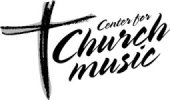Center For Church Music, Songs & Hymns

Browse Hymns:
Browse by:
We Invite You To Sing
To sing with us, 1) Click on the music thumbnail icon to view the sheet music (you don't have to read music!), and 2) Engage the audio file by clicking on the Real audio or Mp3 file.
Find Songs And Hymns
Facts:
- Lyricist: Folliot S. Pierpoint
Lyrics Date: 1864
Arranger: William H. Monk
Key: G
Theme: God's work, creation, gratitude
- Composer: Conrad Kocher
Music Date: 1838
Arranged Date: 1861
Tune Title: DIX
Meter: 7.7.7.7.7.7.
Scripture: James 1:17
Devotional:
Feeling discouraged? "Take a walk among your blessings" was the good advice given years ago for such a predicament. "Count your many blessings, name them one by one…" is the Gospel song’s way of giving the same counsel. Psalm 103 says it best:
Bless the Lord, O my soul, And forget not all His benefits.
Folliot Pierpoint did just that when writing this hymn. His list of blessings includes the natural beauty of earth and skies, the amazing creation called the...
See More
Feeling discouraged? "Take a walk among your blessings" was the good advice given years ago for such a predicament. "Count your many blessings, name them one by one…" is the Gospel song’s way of giving the same counsel. Psalm 103 says it best:
Bless the Lord, O my soul,
And forget not all His benefits.
Folliot Pierpoint did just that when writing this hymn. His list of blessings includes the natural beauty of earth and skies, the amazing creation called the "human being" and the gift of time. But some of his warmest words are used to thank God for the joy that family and friends—living and departed—have given, and continue to give to our lives.
But, not all people can get as excited about the natural world as the writer of this hymn. This is especially true of those living in areas devastated by drought, fire, flood and a myriad of other disasters. And not all can be as enthusiastic about human relationships as he was. For example, those who have been neglected, abused, ignored or betrayed. For all such people, we pray that God will bless them; and then move the rest of us to provide those things—including an open wallet—that will bring peace and release from their difficult circumstances.
"God has no hands but our hands to do His work today" begins an old poem that echoes Jesus’ beautiful words found in Matthew 25:
I was hungry and you gave me food…
You invited me in…you visited me.
For all of us, may the words of this hymn bring strength to unsettled lives and brightness to "blue" ones:
"For Thyself, best gift divine
To our race so freely given…
Lord of all, to Thee we raise
This our hymn of grateful praise."
Nothing…in all creation will be able to separate us
from the love of God that is in Christ Jesus our Lord.
See Less
Hymn Story:
Folliot Sandford Pierpoint was taking a walk one late Spring day, in the lovely area surrounding his home in Bath, England. Overwhelmed with the beauty he saw, he sat down and wrote "For the Beauty of the Earth." Not only does Pierpoint thank God for His beautiful creation, but also for family, friends and other gifts God has bestowed upon us.
This hymn was originally written to be a communion hymn in the Anglican Church. It was first published in Rev. Orvy Shipley’s Lyra Eucha...
See More
Folliot Sandford Pierpoint was taking a walk one late Spring day, in the lovely area surrounding his home in Bath, England. Overwhelmed with the beauty he saw, he sat down and wrote "For the Beauty of the Earth." Not only does Pierpoint thank God for His beautiful creation, but also for family, friends and other gifts God has bestowed upon us.
This hymn was originally written to be a communion hymn in the Anglican Church. It was first published in Rev. Orvy Shipley’s Lyra Eucharistica, 1864. The chorus was originally "Christ our God, to thee we raise this our sacrifice of praise." This is from the post-communion prayer in the Book of Common Prayer, which begins "O Lord and heavenly father, we thy humble servants entirely desire thy fatherly goodness mercifully to accept this our sacrifice of praise and thanksgiving." The compilers of Hymns, Ancient and Modern changed the refrain to "Lord of all, to Thee we raise this our grateful hymn of praise." Most versions now use "… this, our hymn of grateful praise," although the "New Standard" edition of Hymns Ancient and Modern and the Presbyterian Church Hymnary both use the original chorus.
Other changes have also been made. Originally this hymn had eight verses, although in modern day the last three verses of the hymn are generally omitted. They were first omitted by Hymns Ancient and Modern as being too Catholic in their language for an Anglican Hymnal.


